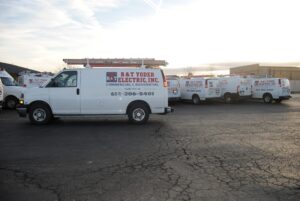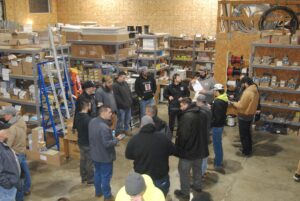Solar Panel Installation Services
Yoder Electric is Central Ohio’s premier solar energy contractor
Want An Estimate ?
Give us a call today or complete the form and we will reach out!
Looking for Solar Panel Installation?
Contact Us Today!
Why Choose
Yoder Electric
Investing in solar panels is more than just adding a feature to your property; it’s an investment in your future, your home’s value, and your finances. At Yoder Electric, we understand the significance of this decision, which is why we offer expert solar panel installation services tailored to meet your specific needs and goals as well as financing and information to assist you in making the change. Check out what you get when you use Yoder:
- Experienced Team: With over 20 years in the industry, Yoder Electric boasts a team of experienced professionals who understand the intricacies of solar panel installations.
- Energy Efficiency Experts: Yoder Electric goes beyond installation; we educate you on maximizing energy efficiency and provide guidance on how to make the most of your solar investment.
- Financial Benefits: Take advantage of potential rebates, tax credits, and energy savings that come with transitioning to solar power. Yoder Electric helps you navigate the financial aspects of solar panel installation.
- Commitment to Sustainability: Yoder Electric shares your commitment to a sustainable future. By choosing solar, you contribute to a cleaner environment and lower dependence on non-renewable energy sources.
Over 10 Locations Across Ohio!
For close to over two decades, we have been serving businesses throughout Central Ohio.
- Plain City
- Westerville
- Marysville
- Reynoldsburg
- Dublin
- Springfield
- Pickerington
- Grove City
- Gahanna
- London
- Delaware
- Hillard
- Central Columbus
Types of Solar Panel Systems
Our expert electricians specialize in the professional installation of solar panels for residential and commercial properties. We ensure precise placement and secure mounting to maximize energy production and longevity.
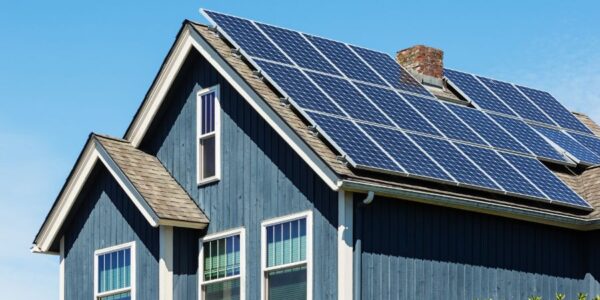
Roof-Mounted Solar Panels
Roof-mounted solar panels are the most common option for residential properties. They are installed directly on the roof of your home, utilizing available space and maximizing exposure to sunlight. Roof-mounted systems are ideal for homes with limited yard space or for homeowners looking for a seamless and integrated solar solution.
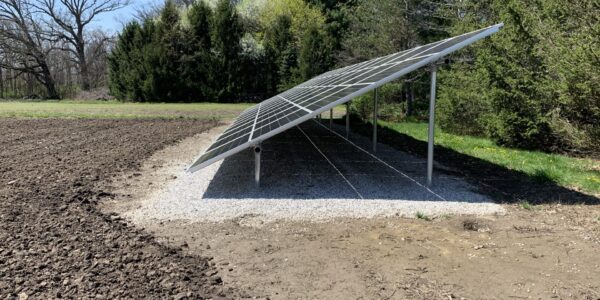
Ground-Mounted Solar Panel Systems
Ground-mounted solar panel systems are installed on the ground rather than on the roof. They require clear access to sunlight and are often preferred for larger properties or homes with ample yard space. Ground-mounted systems offer flexibility in positioning and can be customized to meet specific energy needs. Solar system s offer the benefits of renewable energy and can be connected to the electrical grid.
Our Solar Panel Services
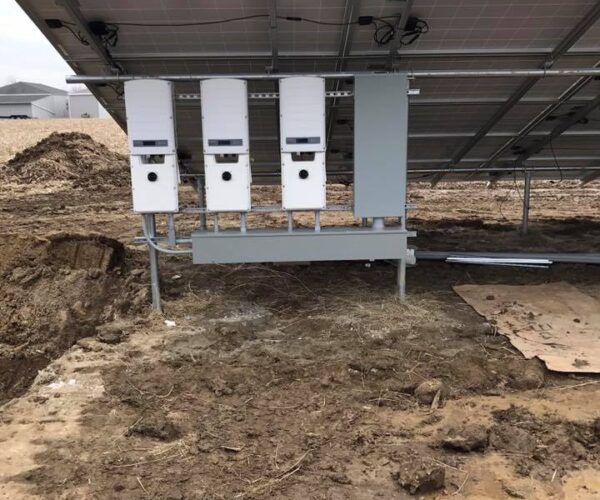
Solar Panel Wiring and Connections
Proper wiring and connections are essential for the efficient operation of your solar panel system. Our electricians handle all aspects of wiring, ensuring safe and reliable connections between panels, inverters, batteries, and the main electrical system.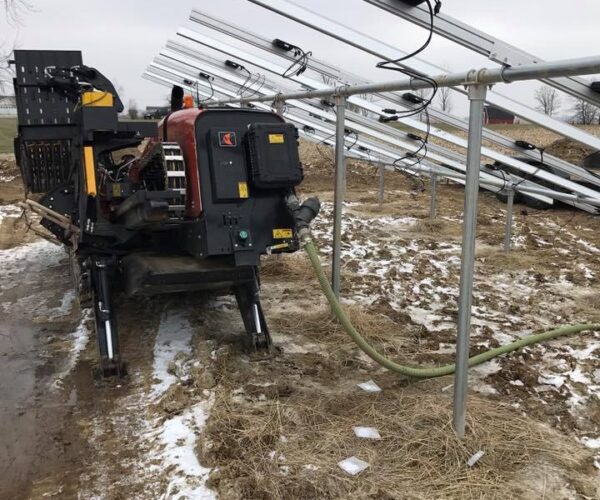
Inverter Installation and Wiring
The inverter plays a crucial role in converting the DC power generated by solar panels into usable AC power for your home or business. Our team expertly installs and wires inverters to optimize energy conversion and system performance.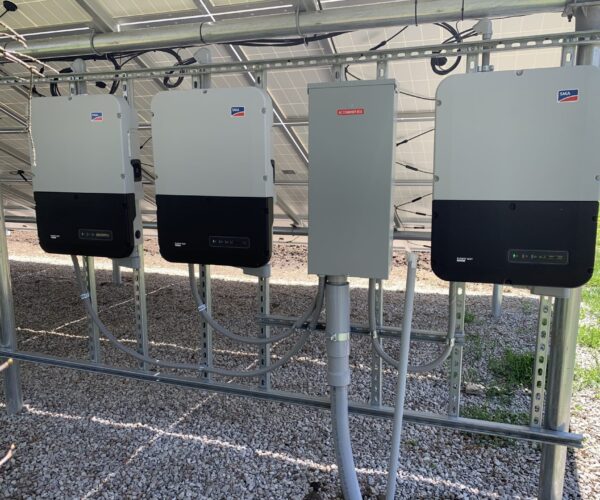
Battery Storage System Installation
Battery storage systems provide backup power during outages and enable you to store excess solar energy for later use. Our electricians are skilled in installing battery storage systems, integrating them seamlessly with your solar panel setup.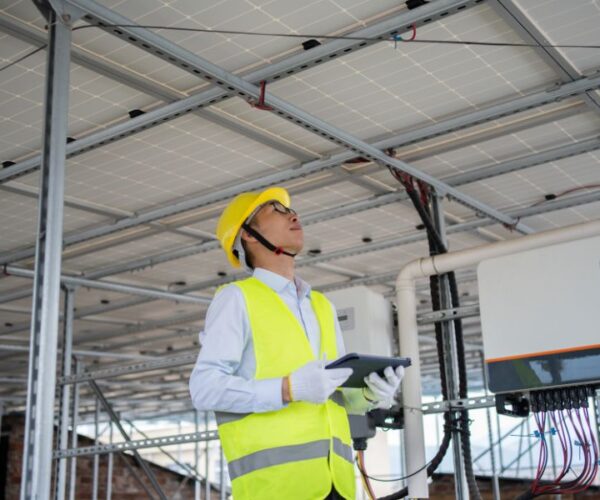
Electrical Inspections for Solar Systems
Regular inspections are vital to ensure the safety and efficiency of your solar panel system. Our electricians conduct thorough inspections, identifying any issues and recommending solutions to keep your system running smoothly.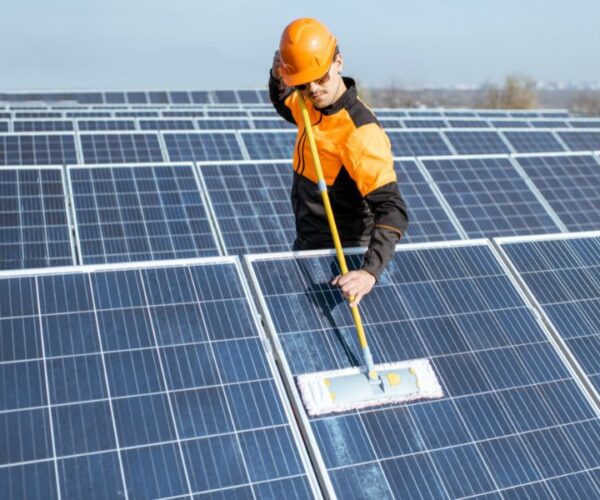
Solar Panel Maintenance and Cleaning
Proper maintenance and cleaning are essential to maximize the lifespan and performance of your solar panels. Our electricians offer comprehensive maintenance services, including panel cleaning, system checks, and preventive maintenance measures.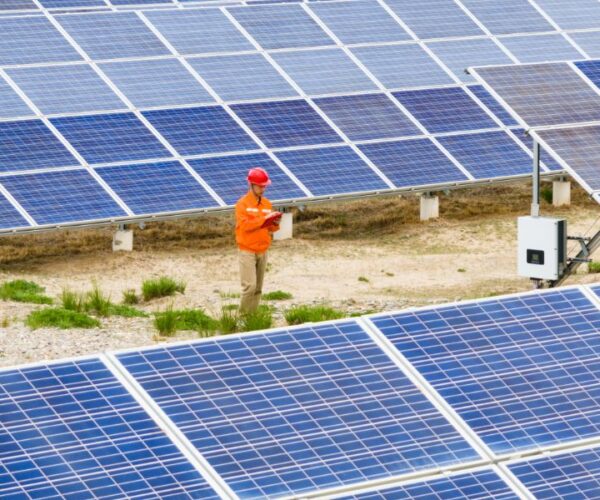
Troubleshooting and Repairs for Solar Panels
If you encounter any issues with your solar panel system, our experienced electricians are here to help. We diagnose problems quickly and accurately, providing efficient repairs to restore your system to optimal working condition.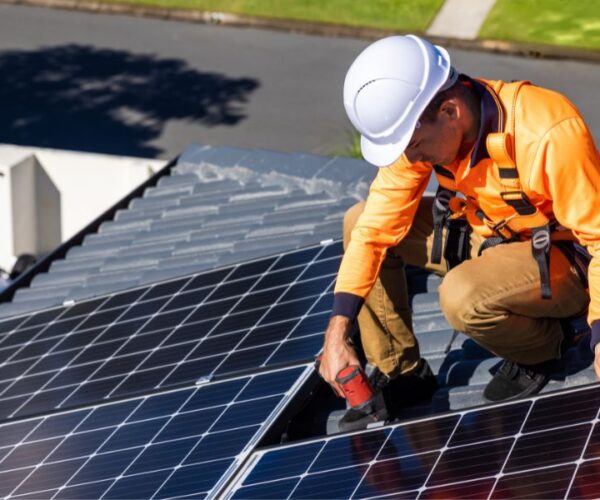
Integration with the Main Electrical System
Integrating your solar panel system with your main electrical system requires careful planning and execution. Our electricians ensure seamless integration, allowing you to harness solar energy to power your home or business efficiently.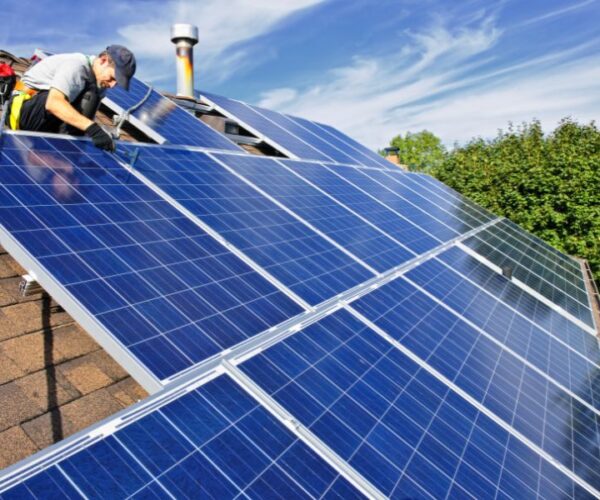
Grid Connection and Net Metering Setup:
Connecting your solar panel system to the grid and setting up net metering arrangements is crucial for maximizing savings and optimizing energy usage. Our electricians handle all aspects of grid connection and net metering setup with precision and expertise.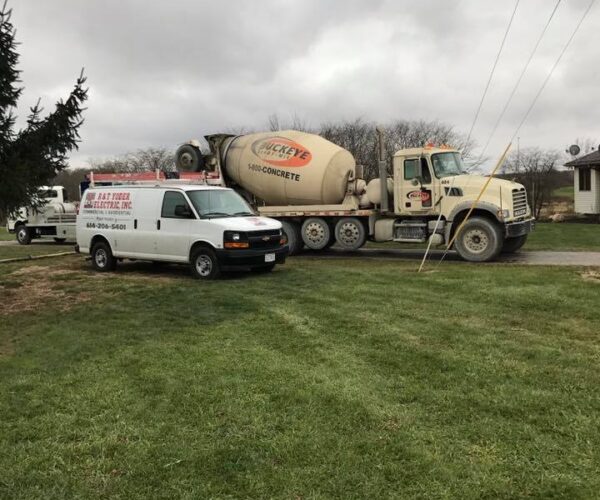
Compliance with Local Electrical Codes and Regulations:
Compliance with local electrical codes and regulations is essential for the safe and legal operation of your solar panel system. Our electricians stay up-to-date with all relevant codes and ensure that your installation meets or exceeds regulatory requirements.Do You Need a Contractor to Install Ground-Mounted Solar?
Can a homeowner install their solar panel system on their own? We’d hesitate to say yes. In fact, there are several advantages to utilizing the services of a solar panel contractor. Those range from the reliability that comes with a professional installation to ensuring your home’s wiring is set up correctly.In some cases, solar panel systems are meant to act as a companion to receiving power from your power grid. If the expectation is to fully replace your dependence on the power company, you will need a substantially large space to ensure you have enough panels for your home or business’ power needs.
However, regardless of your goal, you will require a professionally licensed solar panel technician. In Columbus, some homes are extremely close together. Ground-based solar system will be entirely dependent on how much backyard room you have. Who can set up and install this best? The answer is easy: a solar panel contractor. In Dublin or other suburbs, homeowners often have enough space for a larger field. In any case, the wiring and bonding of a solar panel system will require intricate knowledge of how to ensure your home remains safe and is set up properly.


Do you need a contractor to install roof mounted solar panels?
Roof-mounted solar panel systems need the assistance of a solar energy contractor. As with ground-based systems, these would need to be wired in properly to ensure there are no feedback loops or other safety hazards when utilizing power from both your solar panels and the power company. The expertise and experience of a professional solar panel contractor will help to make this installation an easy one for your home or business. With decades of experience behind us, Yoder Electric is the region’s best source for this type of solar system service.
Transform your home into an energy-efficient haven with residential solar panels from Yoder Electric. Our expert team specializes in designing and installing solar panel systems tailored to meet the unique energy needs of homeowners. Experience the benefits of residential solar panels and start saving on your energy bills today. Contact Yoder Electric to schedule a consultation and explore your solar energy options for your home.
Solar Panels and
EV Chargers
Pairing solar panels with electric vehicle (EV) chargers is a smart and sustainable solution for homeowners looking to reduce their carbon footprint and lower their energy costs. By utilizing solar energy to power EV chargers, you can fuel your electric vehicle with clean, renewable energy, further maximizing the benefits of solar power. Additionally, homeowners can take advantage of tax credit s for installing a solar system, providing financial incentives for going green.
Top 6 Reasons to Have Solar Panels in Ohio
- Energy Savings: Solar panels can significantly reduce your energy bills by generating electricity from sunlight, providing long-term savings on energy costs.
- Environmental Impact: By choosing solar energy, you’re reducing reliance on fossil fuels and lowering greenhouse gas emissions, contributing to a cleaner and healthier environment
- Energy Independence: Solar panels offer energy independence by generating electricity on-site, reducing reliance on the local power grid and protecting against power outages.
- Property Value: Homes and businesses with solar panel systems often see an increase in property values, making solar energy a valuable investment for the future.
- Financial Incentives: Homeowners and businesses may be eligible for federal tax incentives, state rebates, and other financial incentives for installing solar panels, making solar energy more affordable and accessible.
- Sustainability: Solar energy is a renewable and sustainable resource that can provide clean, reliable, and affordable energy for years to come, promoting sustainability and reducing environmental impact. A solar system can harness the power of the sun, converting sunlight into electricity through a photovoltaic system.
At Yoder Electric, we’re committed to helping homeowners and businesses harness the power of solar energy to achieve their energy goals and reduce their environmental footprint. Contact us today to learn more about our solar panel installation services and start your journey towards a brighter and more sustainable future.


Gain Energy Independence
With solar panels, your home can generate its own electricity, reducing reliance on the local power grid and protecting against power outages. The power outages of 2021 in Texas made national headlines. Will the same thing happen one day here in Ohio? We hope not, but the simple truth is that our power grid is operating on borrowed time. Aging infrastructure and capacity not meant to support current demands mean that the reliability of the grid could one day be in question.
- Increased Property Value: Homes with solar panel systems installed by professional contractors often see a significant increase in property values. Investing in solar panels can enhance the attractiveness and marketability of your home.
- Long-Term Savings: While there may be initial costs associated with solar panel installation, long-term savings on energy bills can result in substantial financial benefits over time. Solar energy is a renewable and sustainable resource that can provide energy savings for years to come. Depending on the size of your solar panel system, you may be able to significantly reduce — or even eliminate entirely — your monthly power utility bill. Think of the long-term savings this would provide to your finances.
- Environmental Benefits: Solar energy is clean, renewable, and environmentally friendly, reducing reliance on fossil fuels and lowering greenhouse gas emissions. By choosing solar panels, you’re contributing to a greener and more sustainable future.
- Tax Incentives and Rebates: Homeowners who install solar panels may be eligible for federal tax incentives, state rebates, and other financial incentives, making solar energy more affordable and accessible.
- Energy Efficiency: Solar panels harness the power of the sun to generate electricity, providing a reliable and efficient source of energy for your home. By utilizing solar energy, you can reduce your carbon footprint and promote energy efficiency. One of the concerns some have raised surrounding solar energy is overly cloudy conditions that impede system effectiveness. We understand those concerns, which is another reason why you should work with a solar energy contractor. For starters, they can help you ensure that your grid matches both your property’s layout and home’s power needs.
R&T YODER ELECTRIC, INC.
READY TO HELP YOU WITH YOUR SOLAR PANELS
Call us to schedule an appointment or request an estimate today!
Solar Panel FAQs
What are 5 benefits of solar energy?
Solar energy not only helps you save money on your electricity bills but also significantly reduces your carbon footprint. Did you know that the average residential solar panel system can offset approximately 100,000 pounds of carbon dioxide over its lifetime? Additionally, solar power provides more independence from the grid, offering a reliable source of electricity even during power outages. Homes with solar panels also tend to have higher property values, with studies showing an average increase of around 4% compared to homes without solar. Furthermore, government incentives such as the Federal Solar Tax Credit can further reduce the upfront costs of installing solar panels, making it a financially attractive investment for homeowners.
What are 3 important uses of solar panels?
Solar panels play a crucial role in generating clean electricity for various applications. Beyond powering homes and businesses, solar panels are instrumental in providing energy access to remote areas and off-grid locations. In fact, solar energy is a lifeline for over 840 million people worldwide who lack access to electricity. Moreover, solar panels are essential for charging batteries, enabling energy storage solutions for backup power during emergencies and for powering electric vehicles. As the transportation sector accounts for approximately 29% of greenhouse gas emissions in the United States, the transition to solar-powered electric vehicles is vital for combating climate change. Solar power systems can also benefit from net metering, which allows users to sell excess electricity back to the electrical grid and receive credit for it.
What is the biggest advantage of solar panels?
The biggest advantage of solar panels is their ability to harness renewable energy from the sun. Unlike fossil fuels such as coal, oil, and natural gas, solar energy is abundant, clean, and inexhaustible. In just one hour, the sun radiates enough energy to meet global electricity demands for an entire year. By harnessing this abundant resource, solar panels help reduce greenhouse gas emissions, mitigate air pollution, and combat climate change. Additionally, solar energy provides energy security and resilience, as sunlight is freely available and accessible, unlike finite fossil fuel reserves that are subject to depletion and geopolitical tensions.
What are the pros and cons of solar panels?
Solar panels offer numerous advantages, including long-term cost savings on electricity bills, minimal maintenance requirements, and a lifespan of 25 years or more. However, the upfront cost of installing solar panels can be a deterrent for some homeowners, although prices have decreased significantly in recent years. Moreover, solar panels rely on sunlight availability, making them less effective in areas with frequent cloud cover or shading. Despite these challenges, advancements in solar technology, such as high-efficiency solar panels and energy storage systems, continue to improve the reliability and performance of solar energy systems. Furthermore, net metering allows homeowners to offset their electric usage and receive credit from the electrical grid.
How often should I perform maintenance on my generator?
Regular maintenance is essential to ensure your generator operates reliably during emergencies. It's recommended to perform maintenance at least once a year or according to the manufacturer's guidelines. This includes checking fluid levels, inspecting electrical connections, testing battery performance, and verifying overall functionality.
What size generator do I need for my home?
The size of the generator you need depends on the power requirements of your home. A qualified electrician can perform a load calculation to determine the appropriate size based on factors such as the size of your home, the number of appliances, and your power needs during an outage.
How are solar panels installed?
Solar panel installation typically involves several steps, starting with a site assessment to evaluate the suitability of the location for a solar system. Once the site is deemed suitable, solar panels are mounted on rooftops or ground-mounted structures using specialized racking systems. These panels are then connected to a solar inverter, which converts the direct current (DC) electricity generated by the panels into alternating current (AC) electricity used in homes and businesses. Finally, the solar energy system is connected to the electrical grid or battery storage, allowing for the utilization of solar-generated electricity.
How much do solar panels cost?
The cost of a solar system varies depending on factors such as system size, location, installation complexity, and equipment quality. As of 2021, the average cost of a residential solar panel system in the United States ranges from$10,000 to$30,000 before incentives or rebates. However, it's essential to consider the long-term savings on electricity bills and potential financial tax incentives, such as the Federal Solar Tax Credit, which can offset the initial investment in solar panels.
How do solar panels work?
Solar panels work by harnessing the photovoltaic effect to convert sunlight into electricity. Each solar panel consists of multiple photovoltaic cells made of semiconductor materials such as silicon. When sunlight strikes these cells, it excites electrons, creating an electric current. This direct current (DC) electricity is then captured by the solar panels and converted into alternating current (AC) electricity using an inverter. The AC electricity can then be used to power electrical appliances, lighting, and other devices in homes, businesses, and industries.
How do I clean and maintain my solar panels?
Proper maintenance of solar panels is essential to ensure optimal performance and efficiency. Regular cleaning is recommended to remove dirt, dust, pollen, and other debris that can accumulate on the surface of the panels and reduce sunlight absorption. Cleaning can be done using water and a mild detergent, along with a soft brush or sponge to avoid scratching the panels. It's also essential to trim any overhanging branches or foliage that may cast shadows on the panels, reducing their efficiency. Additionally, scheduling periodic inspections by a qualified solar technician can help identify and address any issues before they escalate, ensuring the longevity and reliability of your solar energy system. Information about tax credit s and insurance is also important to consider.
How many solar panels do I need?
The number of solar panels required depends on factors such as energy consumption, available roof space, panel efficiency, and geographic location. A solar installer can conduct a site assessment to determine the optimal solar system size for your specific needs and objectives. Generally, a typical residential solar panel system ranges from 15 to 25 panels, with an average size of 5 kilowatts (kW) to 10 kW.
What are solar panels made from?
Solar panels are primarily composed of photovoltaic (PV) cells, which convert sunlight into electricity through the photovoltaic effect. These cells are typically made from semiconductor materials such as silicon, which is abundant and widely available. The PV cells are encapsulated between layers of protective glass, polymer, and metal framing to form solar panels. Additionally, solar panels may contain other components such as aluminum frames, junction boxes, and wiring to facilitate installation and electrical connections.

